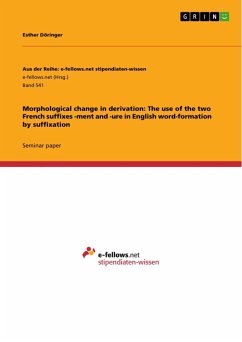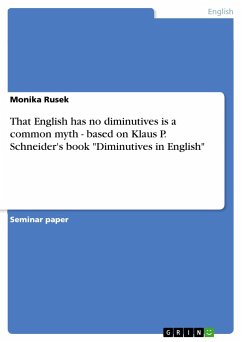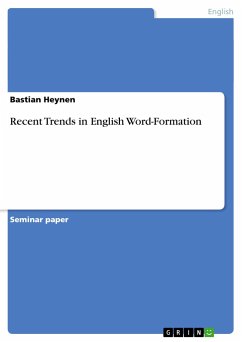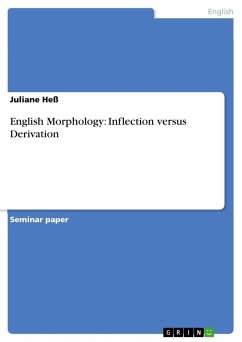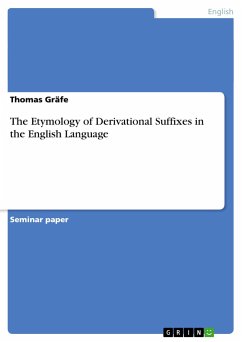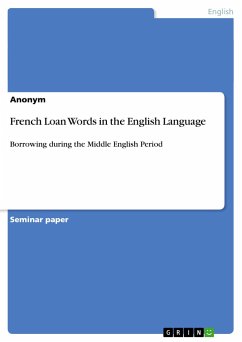Seminar paper from the year 2012 in the subject English Language and Literature Studies - Linguistics, grade: 1,0, University of Erfurt (Philosophische Fakultät), course: Historical Perspective on Present Day English, language: English, abstract: The Norman Conquest in 1066 was not only an important event in the history of England, but also had a great impact on the English language (cf. e.g. Baugh & Cable 2004: 108 ff.; Faiß 1992: 68). Besides various other changes in the English language system, which will not be discussed here in further detail, many French words were borrowed into English. Some of the French suffixes contained in complex loan words subsequently became productive in English derivation (cf. e.g. Bauer 1993: 225 f.; Faiß 1992: 3; Marchand 1969: 210 f.). However, I argue that the ways in which these suffixes were employed in English word-formation vary greatly (cf. e.g. Marchand 1969: 210 f.). While some of the borrowed suffixes were extensively used in English derivation, others remained largely restricted. This will be illustrated by describing how the borrowed French suffixes -ment and -ure were integrated into the English system of word-formation. Special attention will be paid to the word class and etymological origin of the bases -ment and -ure were combined with. Although sociolinguistic factors might also influence how foreign suffixes were used in derivational processes of word-formation (cf. van Loon 2005: xiii), this term paper will focus on language-internal, morphological factors only.
Hinweis: Dieser Artikel kann nur an eine deutsche Lieferadresse ausgeliefert werden.
Hinweis: Dieser Artikel kann nur an eine deutsche Lieferadresse ausgeliefert werden.

